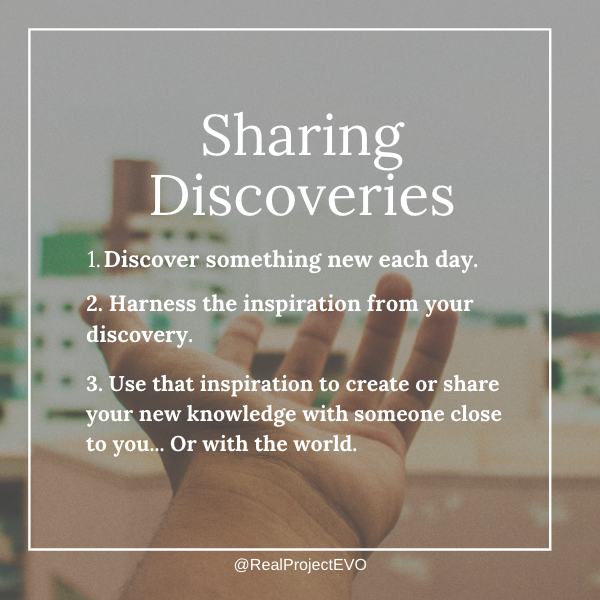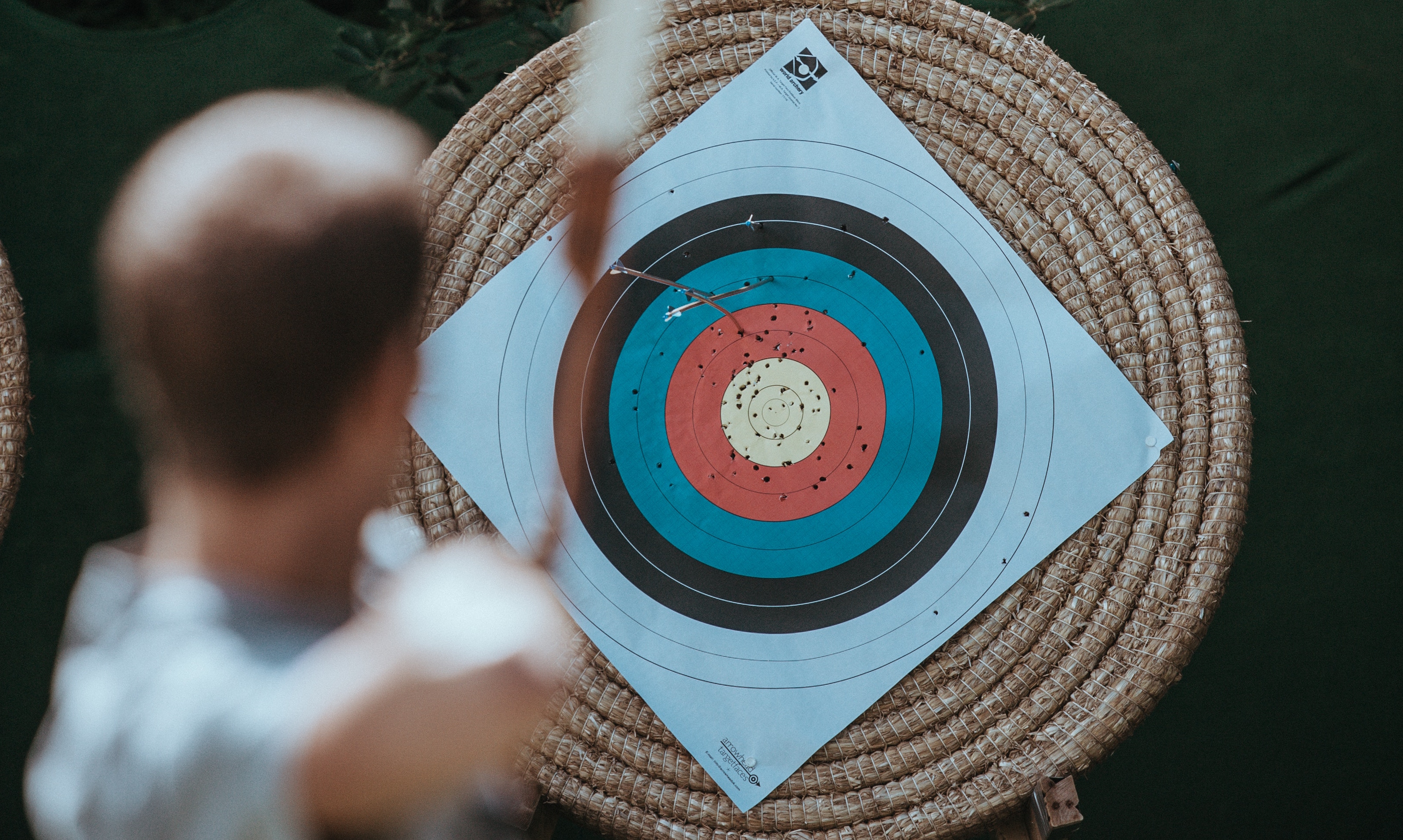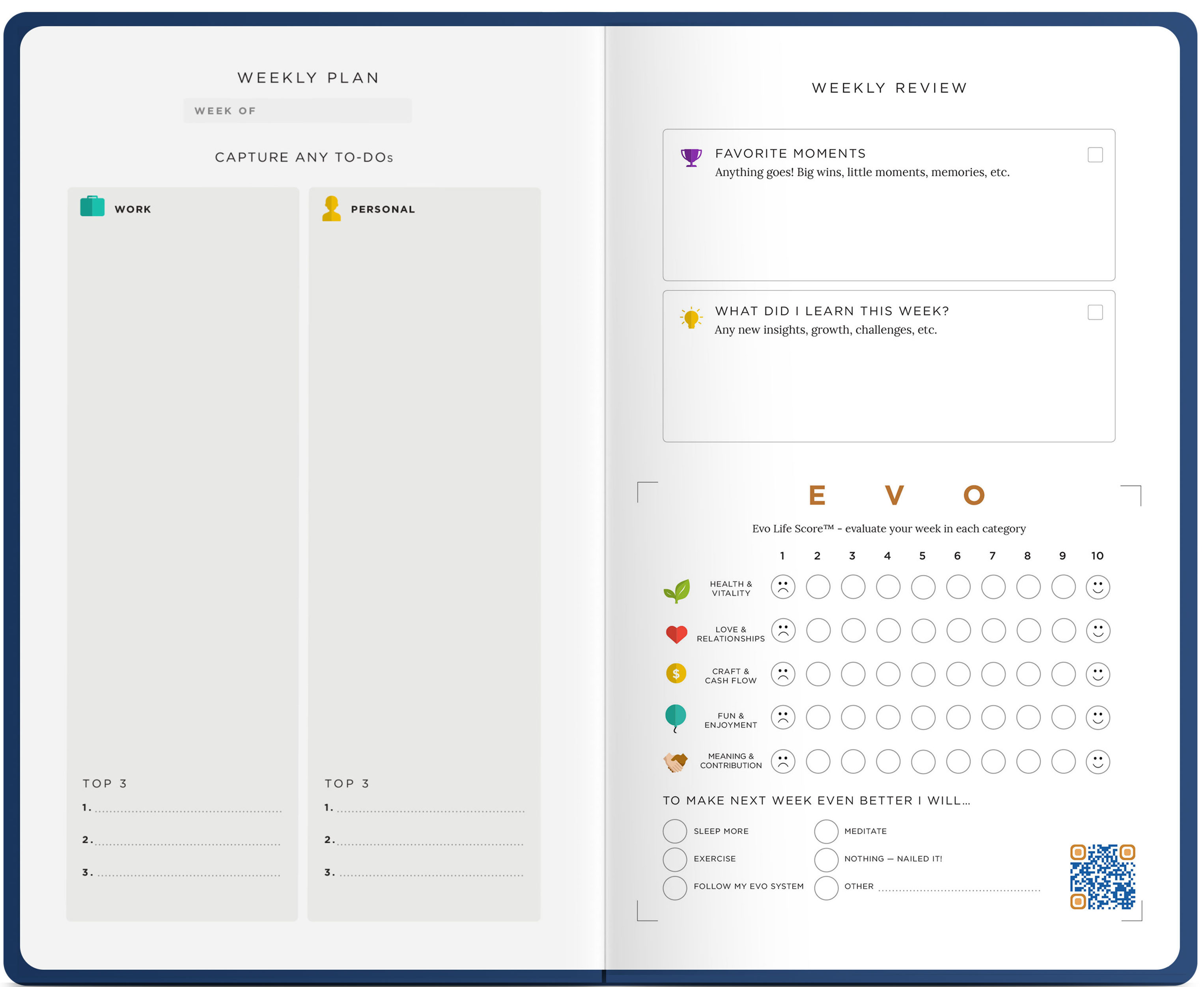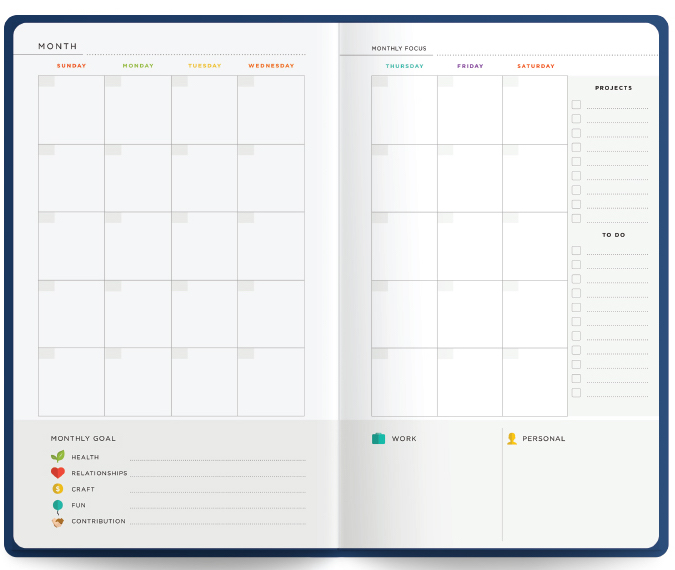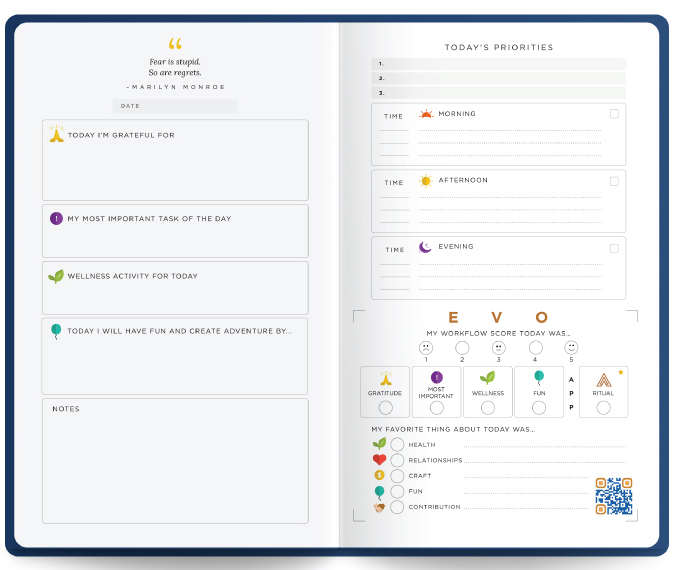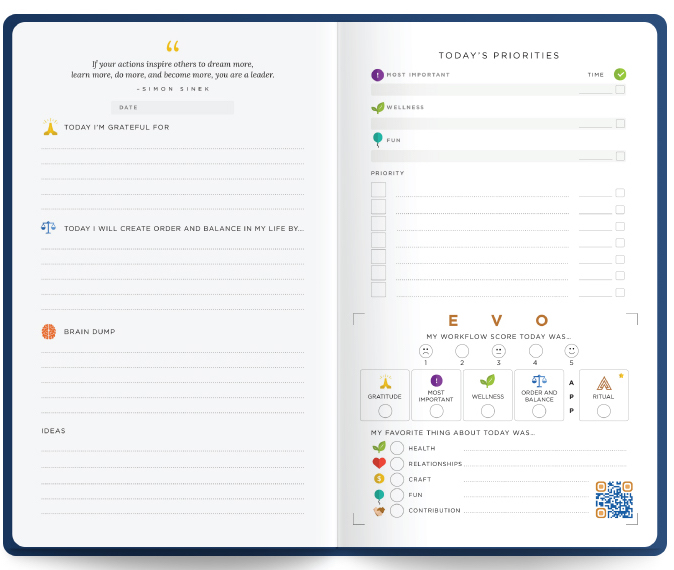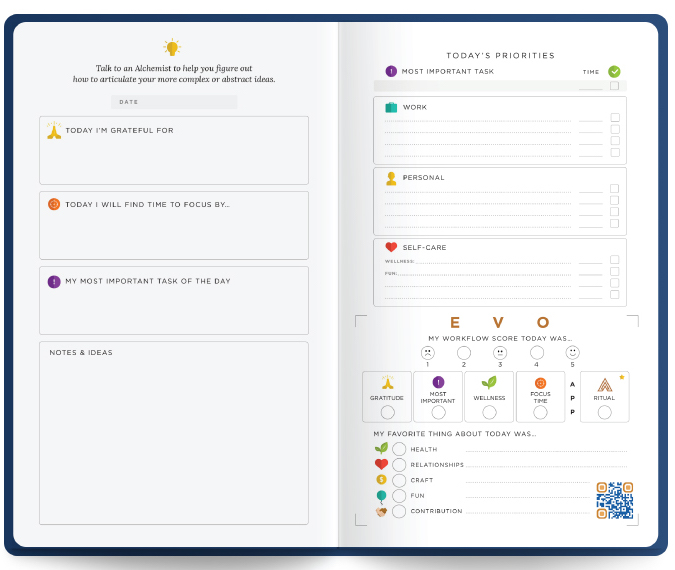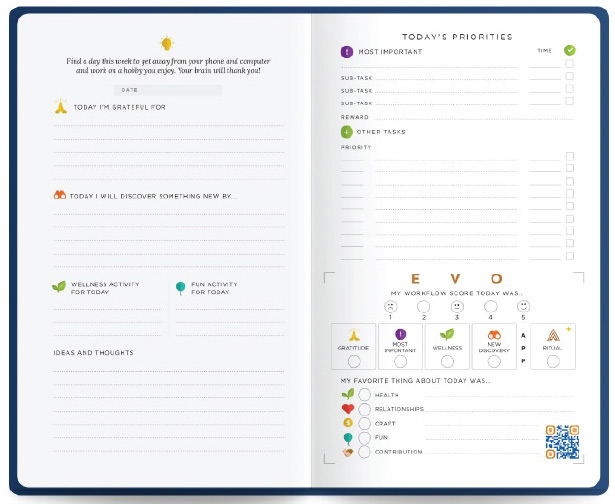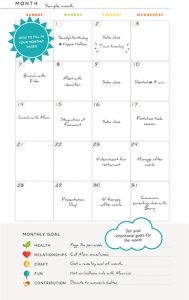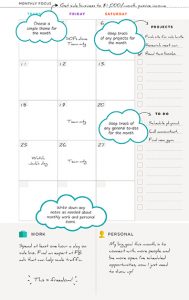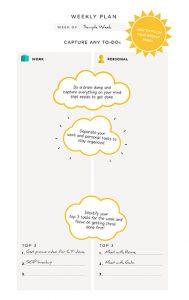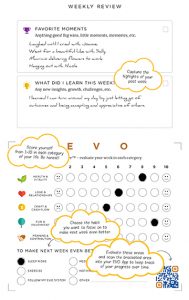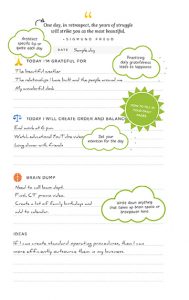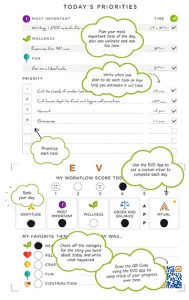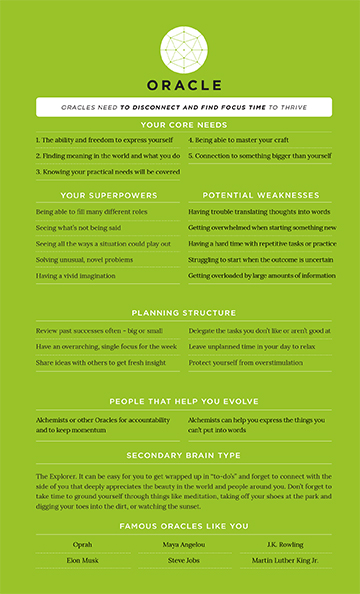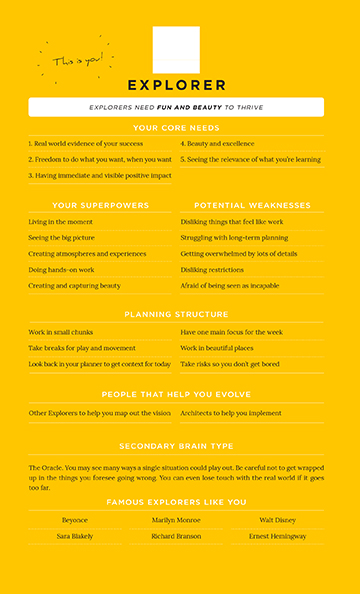BLOG
a
The Anatomy of Your EVO Type, Part I: Understanding Your Top Two Elements
by Iris Strauss
0 views

This is part of a four-part series to help you understand why we present your EVO Elements Assessment results the way we do. Make sure you read all four parts in order to understand the structure of how your Elements fit together, and the reasoning behind that structure.
We get a lot of questions about why we’ve put your elements in the specific order they’re in when you get your unique EVO Element recipe, or EVO Type. For example, people wonder why they didn’t receive a Strategic Oracle* result instead of a Relational Oracle*, or a Compelled* Oracle instead of a Compelled* Explorer result. Or why they can’t be a Relational* Alchemist, or a Determined Explorer*.
It might be tempting to think that your EVO Elements could be ordered in any way, based on your personal experience, pattern of growth, or life circumstance. But there is a reason that we present your EVO Type the way we do… In a nutshell, that reason is: balance. More on that later…
The truth is, each Element in your EVO Type does not exist in a vacuum—there are specific Elements that have inexorable relationships with each other, and specific reasoning as to why we explain the relationships between them in the way we do. Your EVO Type is not a random mishmash of processes—it’s a way to describe the most optimal, truest, best, and most balanced version of yourself.
But let’s start with the basics. First of all, what are all of the EVO Elements?
There are 8 mental processes we discuss, which we call EVO Elements:
Determined
Compelled
Strategic
Relational
Alchemist
Architect
Oracle
Explorer
This list can be broken down and categorized in a myriad of ways, but let’s start with the most familiar, and perhaps most obvious, categories: Brain Types and Compasses.
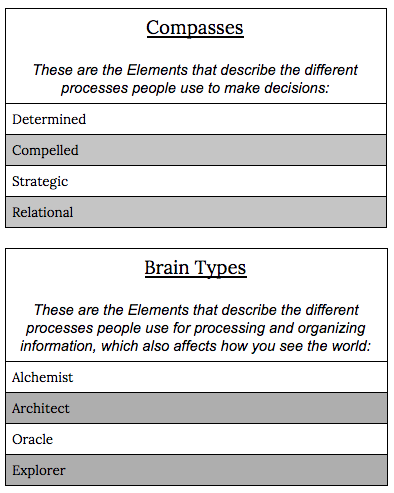
Each type of Element, both Compasses and Brain Types, have further sub-categories: each Brain Type focuses on either abstract or concrete information, and each Compass refers to either gut instinct-based or logic-based decisions. So let’s look at that list again, with these sub-categories in mind.
I’ll clarify what all this means in a moment—for now, we’re just focusing on learning the most important aspect of each Element.
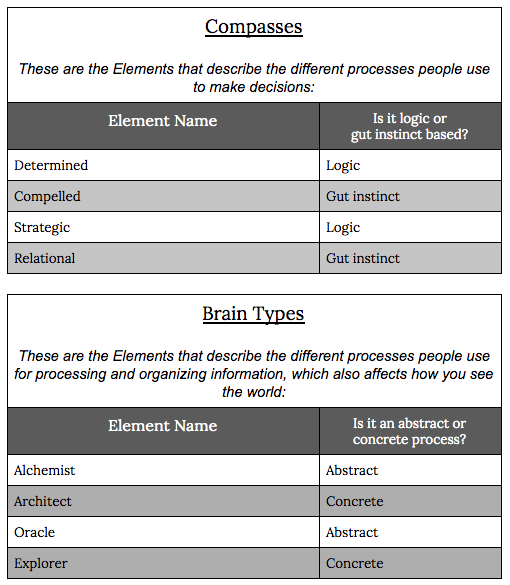
There is one last distinction that each Element has. All Elements are either internally-oriented, and deal with internal thoughts, your own internal world, and are usually fairly self-focused—or they are externally-oriented, and deal with external information, the world around you, and how you interact with others.
Understanding this aspect of each Element shows us how different Elements are related, and helps us understand why some Elements are necessarily linked—in order to provide balance to each other.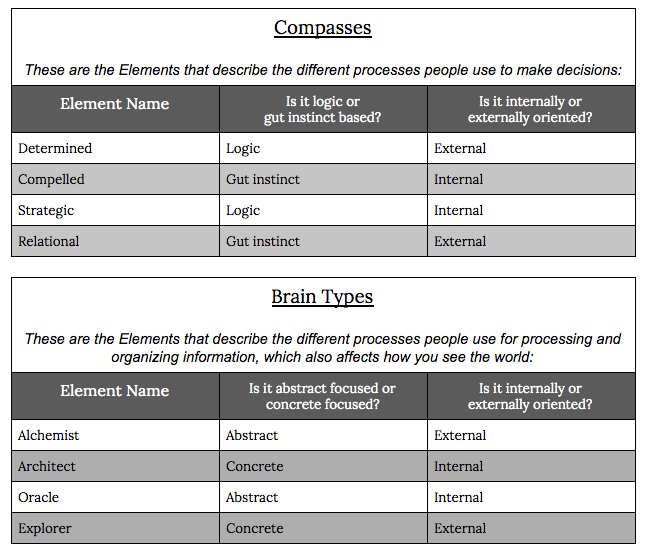
Now, as I mentioned before, the reason we present your EVO Elements the way we do is because of the necessity of balance… Let’s call this the “Balance Principle.” The Balance Principle states that everyone (barring serious mental disorders or disabilities) has to have some version of each of these types of processes:
- A process to understand abstract information.
(intangible, conceptual information, for example, these Elements themselves are very abstract concepts) - A process to understand concrete information.
(information related to your 5-senses—for instance, using sight to read this article, or hearing to listen as your computer or a friend reads it to you) - Ability to make decisions about what they value, what they believe, and what feels right to them.
(gut-instinct-based decisions—which may, but do not necessarily—have an emotional aspect… Like the reasoning behind what kind of work you’re drawn to, why you like spending time with certain people and avoid others, why you’re inexplicably drawn to some things and repelled by others, etc.) - Ability to make decisions based in logic, when presented with factual, objective data.
(a framework for understanding why some options are objectively better than others, based on their knowledge of the situation at hand and all extenuating variables they’re aware of) - And of course, people are both internal and external—having our own thoughts, as well as the capacity for learning from and communicating with others.
(we have Elements we use internally, to understand ourselves, our own thoughts, and our own personal experiences—as well as Elements we use externally, to understand other people and external information out in the world)
This is how we developed each individual EVO Type “recipe”—by studying and interviewing people to understand the mental processes they use to accomplish all of these things in various ways, and the relationship between those processes… How these processes “play” together, if you will.
And the way we define how they play together is by understanding your top preference in the Brain Type and Compass categories, as well as accounting for your preference for both an internal and external Element…
This is why you won’t see a Compelled* Oracle… While one of those Elements is a Compass and the other is a Brain Type, both are internally-oriented. Your top two Elements will always show your top preference for internally and externally focused processes. The same reasoning stands for why you won’t see a Strategic Oracle*—both are internally-oriented Elements.
So essentially, your top two Elements will always be a Compass and a Brain Type, and one of those Elements will be internal, while the other will be external.
Now, there very well may be some people who are so internally focused that they feel they use their internally-oriented Elements way more than their externally-oriented Elements (or vice-versa, someone may be so externally focused that they feel they use their externally-oriented Elements more).
However, our research has shown that people who are overly focused on either their internal or external world aren’t operating as the very best version of themselves… They are imbalanced, and prone to feeling isolated or drained, overworked or understimulated, and they’re usually neglecting either their relationships with others or their relationship to their own heart and mind.
When someone is imbalanced in this way, we have found that focusing on growing and playing in their second (and to a degree, fourth—more on that in a later post) Element can help them overcome loneliness, fatigue, burnout, and help improve their relationships with themselves and those around them.
This is the beauty of EVO Elements… By understanding the inherent relationship between each set of Elements, and how your own Elements play together and provide balance to each other, you can build a roadmap for your own personal growth and development.
Read Part II here, where we will do a deep dive on understanding our Compass Elements, and why both it’s important to be able to make decisions based on both logic and gut-instincts.
